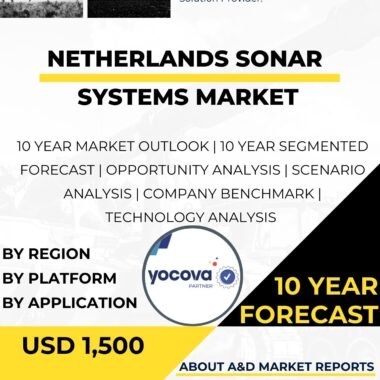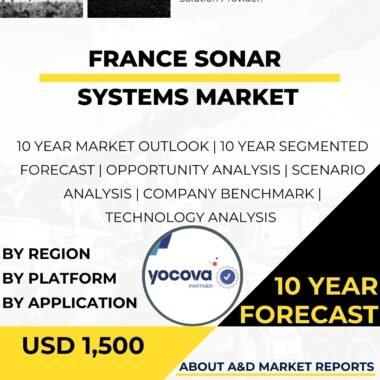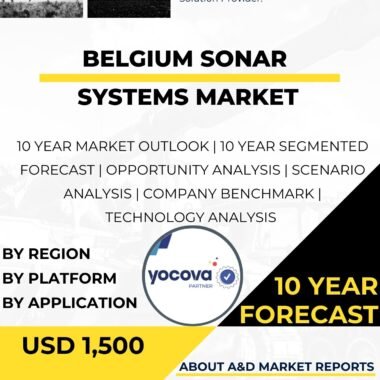Description
Singapore Sonar Systems Market has witnessed substantial growth in recent years, driven by rising maritime security needs, an expanding shipping industry, and rapid technological advancements. Sonar—short for Sound Navigation and Ranging—is an essential technology for underwater detection, navigation, and object tracking. This section provides an overview of Singapore’s sonar systems market, outlining its major growth drivers, applications, challenges, and future outlook.
Market Overview
Singapore’s status as a leading maritime nation and one of the world’s busiest ports has made sonar systems critical to its maritime operations. The technology supports both defense and commercial sectors by enabling effective underwater surveillance, vessel tracking, and environmental monitoring. Continuous investments in advanced sonar solutions have positioned Singapore as a regional hub for underwater technology innovation.
Key Market Drivers
Maritime security remains a primary driver for sonar system adoption in Singapore. The country’s strategic location along major global shipping routes exposes it to risks such as smuggling, piracy, and territorial breaches. To counter these threats, Singapore’s naval and coast guard forces are deploying advanced active and passive sonar systems to enhance maritime domain awareness and safeguard its coastal and offshore zones.
Expanding Shipping and Port Activities
Singapore’s thriving maritime trade has created a strong demand for sonar systems that ensure safe navigation and collision avoidance in its congested sea lanes. The integration of high-performance sonar in commercial vessels and port operations enhances situational awareness, improves vessel traffic management, and minimizes accidents in busy waterways.
Domestic and International Players
The Singapore sonar systems market features a blend of local and international companies. Domestic firms are advancing homegrown sonar technologies, strengthening local expertise and supporting national economic growth. Meanwhile, global defense and marine technology firms have established strong regional operations in Singapore, attracted by its business-friendly environment and skilled workforce. This combination fosters competition, drives innovation, and diversifies product offerings.
Applications of Sonar Systems
The scope of sonar technology in Singapore extends beyond defense and navigation. Key applications include:
Offshore oil and gas exploration – for seabed mapping and infrastructure inspection.
Underwater environmental monitoring – to assess marine ecosystems and pollution levels.
Marine research and oceanography – supporting scientific exploration.
Fisheries management – optimizing catch efficiency and sustainability.
The development of multifunctional sonar systems capable of addressing multiple sectors simultaneously has broadened their adoption across both public and private sectors.
Environmental Impact
One of the notable challenges is underwater noise pollution caused by sonar emissions, which can disrupt marine life. Singapore’s growing commitment to marine conservation requires the development of eco-friendly sonar systems that maintain performance while reducing acoustic disturbance.
Technological and Economic Constraints
The fast pace of technological evolution in sonar systems presents both opportunities and challenges. Manufacturers must continually invest in R&D to stay competitive, which increases operational costs. Smaller firms, in particular, may struggle with the high expense of developing and maintaining advanced sonar technologies.
Future Outlook
Despite these challenges, the outlook for the Singapore sonar systems market remains highly promising. Ongoing government investments in maritime safety, defense modernization, and autonomous underwater technologies will fuel further growth. The increasing use of autonomous underwater vehicles (AUVs) and unmanned underwater vehicles (UUVs) equipped with advanced sonar systems is expected to create new opportunities for innovation and market expansion.
Conclusion
The sonar systems market in Singapore is poised for sustained growth, supported by maritime security priorities, robust port activities, and continuous technological advancement. The synergy between local innovation and international collaboration has cultivated a dynamic ecosystem for sonar development and deployment. While challenges related to environmental impact and cost persist, Singapore’s strategic investments in research, defense, and underwater automation ensure that its sonar systems market will remain a cornerstone of maritime safety, operational efficiency, and regional security.




